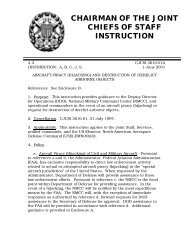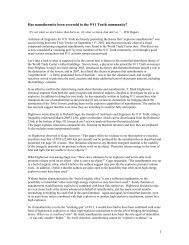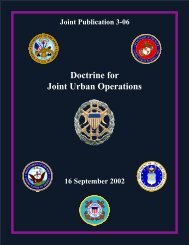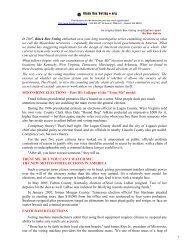illicit drug use in the eu: legislative approaches - EMCDDA - Europa
illicit drug use in the eu: legislative approaches - EMCDDA - Europa
illicit drug use in the eu: legislative approaches - EMCDDA - Europa
Create successful ePaper yourself
Turn your PDF publications into a flip-book with our unique Google optimized e-Paper software.
<strong>EMCDDA</strong> <strong>the</strong>matic papersIllicit <strong>drug</strong> <strong>use</strong> <strong>in</strong> <strong>the</strong> EU: <strong>legislative</strong> <strong>approaches</strong>‘to establish as a crim<strong>in</strong>al offence […] possession […] for personal consumption […] keep<strong>in</strong>g <strong>in</strong>m<strong>in</strong>d that parties have to meet <strong>the</strong>ir fundamental obligation under [<strong>the</strong>] conventions to limit <strong>the</strong><strong>use</strong> of controlled substances to medical and scientific purposes’ ( 22 ).More recently, <strong>the</strong> INCB has expressed reservations about <strong>the</strong> United K<strong>in</strong>gdom’s proposal totransfer cannabis from Class B to Class C ( 23 ), hav<strong>in</strong>g regard to <strong>the</strong> ‘confusion’ and ‘widespreadmisunderstand<strong>in</strong>g’ that would <strong>in</strong> its view result. The British Government reacted officially to <strong>the</strong>Report, notably <strong>in</strong> a speech by its delegation at <strong>the</strong> meet<strong>in</strong>g of <strong>the</strong> Commission on NarcoticDrugs <strong>in</strong> Vienna on 8 April 2003 ( 24 ).Aga<strong>in</strong>, <strong>the</strong> recent Belgian proposal to amend <strong>the</strong> law on <strong>drug</strong>s, under which crim<strong>in</strong>al sanctionsaga<strong>in</strong>st <strong>drug</strong> <strong>use</strong>rs would be only a last resort, was not criticised by <strong>the</strong> INCB, which, <strong>in</strong> its letterto <strong>the</strong> Belgian M<strong>in</strong>ister of Justice dated 28 March 2003 ( 25 ), confirms that <strong>the</strong> proposal is <strong>in</strong>l<strong>in</strong>e with <strong>the</strong> conventions, while po<strong>in</strong>t<strong>in</strong>g out that lift<strong>in</strong>g <strong>the</strong> ban on acts preparatory to <strong>drug</strong> <strong>use</strong>(which were not proposed <strong>in</strong> <strong>the</strong> draft law) would be contrary to <strong>the</strong> conventions.It might be of <strong>in</strong>terest here to recall that <strong>the</strong> Spanish and Italian options to apply adm<strong>in</strong>istrativesanctions for possession for personal <strong>use</strong> of all <strong>drug</strong>s (respectively from 1992 and 1990),were not met with disapproval <strong>in</strong> <strong>the</strong> INCB reports of those years. A possible <strong>in</strong>terpretation isthat <strong>in</strong> Spa<strong>in</strong> and Italy <strong>the</strong> <strong>legislative</strong> amendments took <strong>the</strong> form of a change from a situation<strong>in</strong> which a certa<strong>in</strong> conduct was not subject to sanctions, to one of prohibition punishable byadm<strong>in</strong>istrative sanctions; <strong>in</strong> o<strong>the</strong>r words, <strong>the</strong> law was stiffened <strong>in</strong> both cases. More recently, <strong>in</strong><strong>the</strong> o<strong>the</strong>r countries, <strong>the</strong> change has been from a crim<strong>in</strong>al offence, possibly carry<strong>in</strong>g a penalty ofimprisonment, to a prohibition subject to sanctions o<strong>the</strong>r than deprivation of liberty (at least for afirst offence) ( 26 ).Despite <strong>the</strong> criticisms, <strong>the</strong>se provisions seem to be consistent with <strong>the</strong> direction also suggestedby <strong>the</strong> INCB <strong>in</strong> its Report of 1996, to make ‘greater <strong>use</strong> of treatment and alternative penalties,( 22 ) International Narcotic Control Board (INCB), 2001 Report (509), United Nations, New York, 2002.( 23 ) International Narcotic Control Board (INCB) 2002 Report (499), United Nations, New York, 2003: The Boardcomments as follows on <strong>the</strong> announcement from <strong>the</strong> United K<strong>in</strong>gdom Government that cannabis was to be placed <strong>in</strong>a schedule subject to less severe control measures: ‘<strong>the</strong> worldwide repercussions ca<strong>use</strong>d by that announcement […][<strong>in</strong>clude] confusion and widespread misunderstand<strong>in</strong>g. A survey undertaken <strong>in</strong> <strong>the</strong> United K<strong>in</strong>gdom found that as manyas 94 per cent of children believed that cannabis was a legal substance or even some type of medic<strong>in</strong>e. The survey alsodiscovered that nearly 80 per cent of teachers <strong>in</strong> <strong>the</strong> United K<strong>in</strong>gdom believed that <strong>the</strong> recent reclassification of cannabiswould make educat<strong>in</strong>g pupils about <strong>the</strong> dangers of <strong>drug</strong> ab<strong>use</strong> more challeng<strong>in</strong>g and difficult. Several op<strong>in</strong>ion polls taken<strong>in</strong> July and August 2002 found that <strong>the</strong> majority of <strong>the</strong> population did not support that reclassification.’( 24 ) Extract from <strong>the</strong> British Delegation’s speech at <strong>the</strong> last meet<strong>in</strong>g of <strong>the</strong> Commission on -- Drugs <strong>in</strong> Vienna on 8 April2003: ‘… <strong>the</strong> UK Government felt compelled to write to <strong>the</strong> Board on 3 March 2003 to express its dismay at commentsmade <strong>in</strong> <strong>the</strong> Board’s report for 2002 about <strong>the</strong> UK’s decision to reclassify cannabis. In particular <strong>the</strong> UK Government wasconcerned about <strong>the</strong> alarmist language <strong>use</strong>d, <strong>the</strong> absence of any references to <strong>the</strong> scientific evidence on which <strong>the</strong> decisionwas based, and <strong>the</strong> mislead<strong>in</strong>g way <strong>in</strong> which <strong>the</strong> decision was presented by INCB representatives to <strong>the</strong> media’.( 25 ) Letter from <strong>the</strong> Secretary of <strong>the</strong> Board, Mr Herbert Schaepe, to <strong>the</strong> Belgian M<strong>in</strong>ister of Justice, Mr Verwilghen, dated28 March 2003.( 26 ) The Italian law was however object of disagreement by <strong>the</strong> INCB <strong>in</strong> <strong>the</strong> 1999 Report, where critics have beenmoved towards <strong>the</strong> 1993 amendment: ‘<strong>the</strong> decrim<strong>in</strong>alisation of <strong>drug</strong> possession and ab<strong>use</strong>, which was <strong>in</strong>troduced <strong>in</strong>Italy <strong>in</strong> 1993, is not <strong>in</strong> l<strong>in</strong>e with several provisions of <strong>the</strong> 1961 Convention and <strong>the</strong> 1988 Convention’. While not wish<strong>in</strong>gto <strong>in</strong>terpret this op<strong>in</strong>ion, we should like to po<strong>in</strong>t out that <strong>the</strong> French version of <strong>the</strong> Report <strong>use</strong>s <strong>the</strong> word ‘dépénalisation’where <strong>the</strong> English version has ‘decrim<strong>in</strong>alisation’.9






